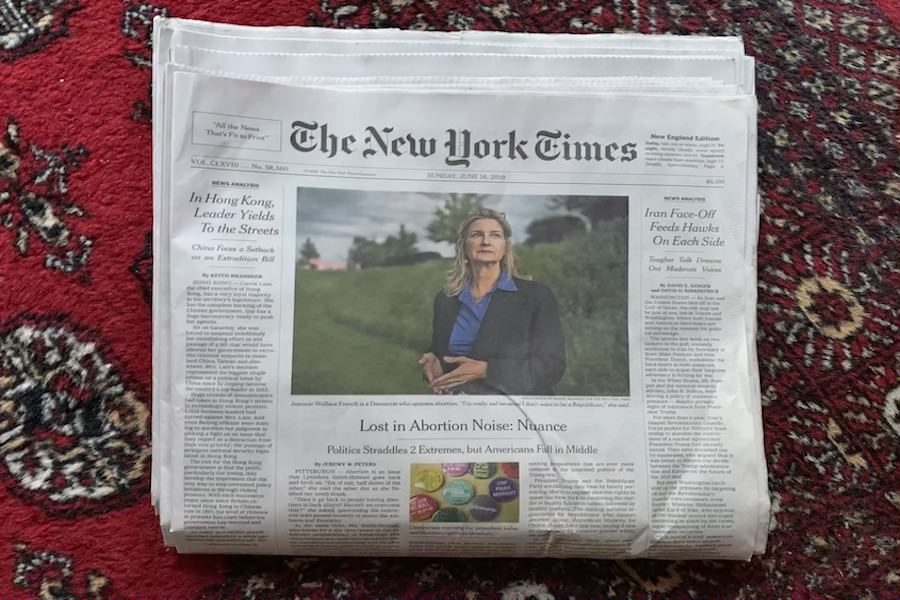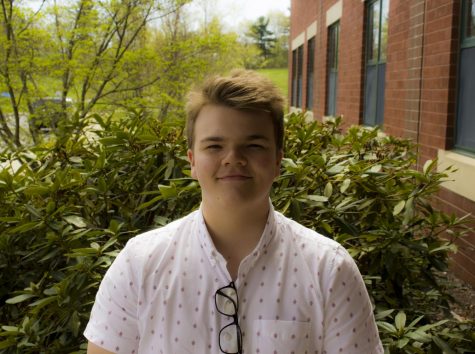How Biased Reporting Blurs The Truth and Public Opinion
With media becoming increasingly accessible to anyone anywhere, the growing threat of widespread disinformation has become a realistic possibility. “The lowest form of popular culture – lack of information, misinformation, disinformation, and a contempt for the truth or the reality of most people’s lives – has overrun real journalism. Today, ordinary Americans are being stuffed with garbage,” said Watergate investigative journalist, Carl Bernstein.
September 4, 2019
Living in the “Fake News Era” has transformed the once pleasurable experience of ingesting daily news into a cumbersome burden of deep analysis and constant double-takes. No longer is there a mutual trust between the Press and the general public. Facts are now debated more than ever for their accuracy, and the traditionalism once present in media has been overhauled to fit an environment which views speed over accuracy in reporting. Biased news is thriving, leaving divisions in a nation that’s committed to tranquility, and replacing accountability with personal interests.
Although mainstream media outlets and previous presidential administrations have bumped heads in the past, the anti-media sentiments broadcasted by the Trump administration have created an environment unlike any other seen prior, in ways surpassing the actions taken by the Nixon White House in the early seventies. President Trump has described media outlets critical of his administration as, “the enemy of the people,” leaving many of his supporters to reconsider their subscriptions and trust in modern-day American journalism. “The right wing isn’t fairly represented,” said Salvatore Fabbio ‘20.
New platforms have created an influx in the amount of disinformation spread to the general public, and social media has given outlets a new method of forming relationships with their viewers. These often small-scale agencies are usually curated for subscribers of certain political affiliations to read and agree with. As one can imagine, news which sways the facts to promote a specific political agenda is dangerous. “They call the media ‘the Fourth Estate,’ because it’s just as important when providing checks and balances to the government,” said Student Body President, Mary Martin ‘20.
She added, “the media can’t be keeping [the government] in-check when it’s just as political and corrupt as the system itself.” Martin is absolutely correct. It’s essential to any country utilizing a democratic system, like the United States, for a free press to report without bias and affiliation to power. It’s “the voice of the people!” Martin concluded.
As a self-proclaimed Independent, Samantha Price ‘20, tends to have a difficult relationship with the current operation of mainstream media companies. “[The media’s] twisting of the truth is inevitable,” said Price. Though she finds disinformation by journalistic organizations to be a major misuse of power, she favors blatantly biased outlets because they give an accurate opinion of a particular political party’s electorate. She views both CNN and FOX before generating an opinion for herself.
“That’s what democracy is all about—having both sides [represented],” Price elaborated. Diversifying in media is just as beneficial as diversifying one’s financial portfolio.
Reporters, especially those in public service positions, shouldn’t expilictly tell their viewers about a certain discussed topic. By doing so, they break one of the golden rules of journalism: protecting the decision of the viewer. Gathering facts, data, and formulating a brief analysis of events are the primary duties of a journalist, yet it’s so common that we hear “I think,” or “If you ask me,” mixed into that equation as well.
It becomes concerning when many members of the public rely heavily on biased mediums such as cable news and various social media platforms. It’s dangerous to rely on one source, even if it’s reputable, because different authors promote different biases. “They believe whatever they read and then they form their own opinions based on that one source,” said Amanda Goclowski ‘20 in regard to singular source dependency.
Overwhelming public intelligence is the fuel to a well-functioning democracy. Yet when members of the public are adulterated by anonymous sources which praise upon false narratives, it fuels debate on the most objective of facts. Whether or not facts support an argument, hot phrases like “conspiracy theory” and “deep state” dominate media sites with their ominous and erie reality. “The way they present their news is very intelligent and makes them seem credible,” said Sophia Kotelly ‘20.
The relationship between the Press and the people has never been so strong and so weak at the same time which leaves the general public in complete disarray. How do you trust organizations that so many people dispise? The answer: when the media is conducting their job properly, as a majority of organizations do without praise, they’re effectively a watchdog on all aspects of our joint democratic and capitalistic society. The Press investigates and reports for the benefit of the surrounding community, not for profitable outcomes. In layman’s terms, the journalistic community serves the general public by investigating, educating, and keeping accountability on government officials.
It’s unclear what exactly the future of journlaism entails, however, it’s sure to be as unpredictable as the past few years. Online entities will surely concoct more efficient ways of spreading large-scale disinformation to voters throughout the country and world.
Awareness is the primary method of spotting and dodging yellow journalism.














